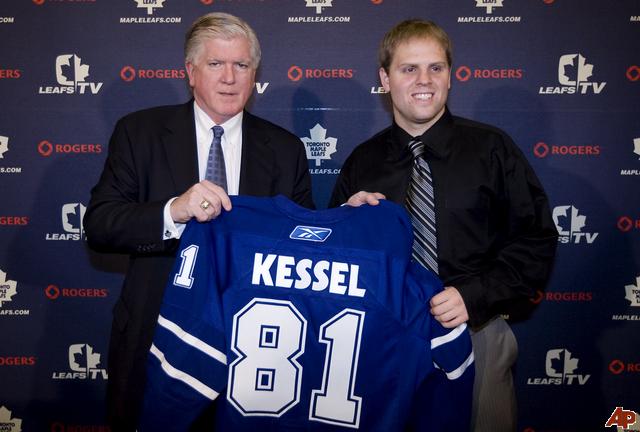Georges Laraque: NHL has problem with performance-enhancing drugs
by Benjamin Shingler (CP)
A new book by a retired hockey enforcer suggests the scourge of steroids in professional sports extends far beyond baseball and was commonplace for years in NHL locker rooms.
Georges Laraque says he knew a lot of players, including some of the league's top performers, who used steroids while he was in the league.
“I have to say here that tough guys weren't the only players using steroids in the NHL,” Laraque wrote in “The Story of the NHL's Unlikeliest Tough Guy,” published by Viking Canada.
“It was true that quite a lot of them did use this drug, but other, more talented players did too. Most of us knew who they were, but not a single player, not even me, would ever think of raising his hand to break the silence and accuse a fellow player.”
Laraque, who is now a deputy leader of the federal Green Party, doesn't accuse any players by name in the book either.
But he does offer some hints for what to look for.
“First, you just have to notice how some talented players will experience an efficiency loss as well as a weight loss every four years, those years being the ones the Winter Olympics are held,” he wrote.
“In the following season they make a strong comeback; they manage a mysterious return to form.”
Laraque said enforcers also used steroids to gain weight before arriving in the pros, and substances like Ephedrine so they would be desensitized before a fight.
“Before a game, as I would warm up on the ice, I would always look at the tough guy on the other side,” he wrote.
“If his arms were trembling, if his eyes were bulging, I knew for sure he wasn't going to feel any of the punches I would give him.”
Laraque, who last played in the NHL in 2010, said the league began to tackle the problem in his final years in pro-hockey by setting clear rules against performance-enhancing drugs.
But he said that hockey now must take action against human growth hormone, a drug purported to improve workouts and healing time, which players have started using in recent years.
The NHL and the NHL Players' Association have not yet responded to Laraque's claims.
Testing for performance enhancing substances was included in the collective bargaining agreement reached by the NHL and the NHLPA in 2005.
Under that agreement, every player in the league is subject to three “no-notice” tests from the start of training camp through the end of the regular season.
In the book, Laraque said he asked the NHLPA to take action soon after his career began in 1997.
The NHLPA listened, but initially refused to take any action, “for obvious political reasons.”
“They wanted to keep drug testing as a card in their negotiations with the league,” he wrote. “Plus, since their main goal was to protect the players, to take action against drugs would have harmed some of those players.”
The outspoken Laraque doesn't shy away from controversy in his memoir.
He also offered a frank take on his time with the Phoenix Coyotes under Wayne Gretzky, calling the Great One “the worst coach I've ever played for.”
This isn't the first time the NHL has been under the spotlight for an alleged connection with steroids.
Last year, a Virginia chiropractor who treated members of the Washington Capitals pleaded guilty to misdemeanour steroids charges.
Douglas Nagel, who had offices in the same Arlington, Va., mall complex as the Capitals' practice facility, was placed on three years of probation and ordered to perform 200 hours of community service.
Capitals players Matt Bradley, Shaone Morrison and Eric Fehr admitted receiving chiropractic treatment from Nagel but denied getting steroids from him.
Nagel denied he ever distributed steroids and said the drugs he ordered from a Florida supplier were for personal use.
The supplier, Andrew Thomas, had told investigators that Nagel had boasted the steroids were for professional athletes.
When Nagel was arrested in March 2010, the NHL and the Capitals said the league had done a thorough investigation and there was nothing linking the Nagel case to steroid use by any members of the team.
Polk County Sheriff Grady Judd said at the time the NHL was not co-operative in his investigation of the case.
http://www.theglobeandmail.com/sports/hockey/georges-laraque-nhl-has-a-problem-with-performance-enhancing-drugs/article2226866/











